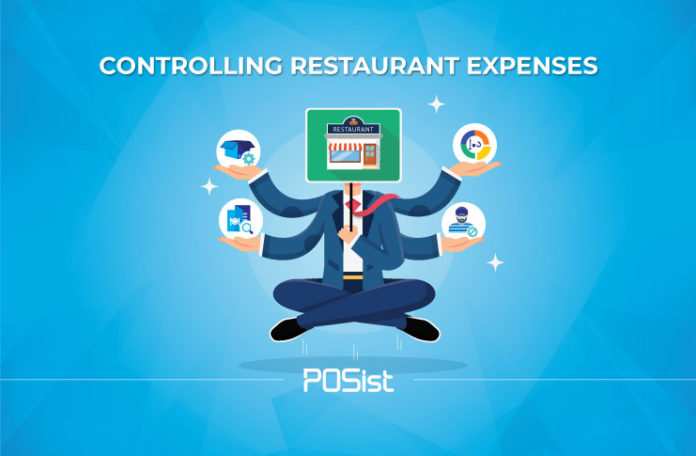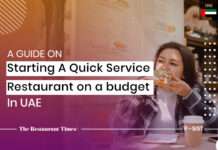Money is a major concern for every restaurant business, be it new or old. Managing your expenses tactfully would help you run your business profitable and would ensure your restaurant is never out of business. There are two major restaurant expenses in any food business, food, and labor.
In UAE, most of the food products are imported which leads to high food costs. Plus, despite UAE being an attractive destination for hospitality jobs, there is still a lack of skilled labor. High rentals and operational costs further add to the restaurant expenses.
However, controlling the restaurant expenses does not mean compromising on the quality or increasing your menu prices. You need to be strategic when controlling your restaurant expenses and know how to manage the capital when the cash flow is low.
How To Control Your Restaurant Expenses
When it comes to bringing down the restaurant expenses, most operators simply focus on food and labor costs. While these are an integral part of restaurant expense management, you should consider other areas of your operations as well to keep your costs in check.
Here are some tips you can abide by when planning out an agenda for restaurant expense management.
1. Trim The Food Waste
The biggest mistake that restaurant owners make is not supervising the amount of food being purchased, cooked, and wasted. It is not just the duty of the head chef, but you need to pay attention to how much food waste is your restaurant producing and how you can curb this. According to an article released by The Gulf News, Nearly 38 percent of food is wasted every day in Dubai, which goes up to 55 percent during Ramadan. You can imagine the high losses that the restaurants might be facing due to high food wastage percentage.
The two primary reasons why the food is wasted in the restaurant industry are:
- Overstocking the inventory and not being able to use the raw material on time.
- Overfilling the plates with excess food which the guests are unable to finish
Whatever the reason might be for the food wastage it is your loss ultimately. You can use these tips to stop throwing food and money in the bin.
- Have a recipe list handy: You should have a standard recipe list which your cooks should abide by. Creating a recipe list helps in identifying how much raw material would be required for cooking and what would be the portion size. This would avoid any wastage and help maintain consistency.
- Digitalize the inventory control: You cannot keep running back and forth to check the inventory levels and the expiry date of the raw material. You should invest in a good inventory and stock management system. This would prevent overstocking and would also let you know if the raw material is about to go rancid. It will also provide you with real-time inventory reports that will prevent you from placing orders unnecessarily.
- Reuse the unusable: Find innovative ways of using waste. For example, after the “meaty” parts of the chicken have been used up for cooking you can use the remaining pieces to prepare chicken broth which you can later use for some other dish.
2. Energy Conservation
Cutting down the electricity cost drastically helps in controlling your restaurant’s expenses. Also, it is a great environment-friendly practice which is the right thing to do!
You need to make your staff realize the importance of energy conservation and how it helps in controlling the restaurant expenses.
You can organize a meeting and help explain to the staff the need for energy saving and how they can contribute to this change.
Here are some steps you can take to save energy at your restaurant:
- If you are planning to buy new appliances for your restaurant make sure to look for the Emirates Energy Star(EES) rating, it indicates the percentage of energy saving. These appliances are better at saving energy and help in reducing electricity bills.
- Proper cleaning and maintenance of the appliances have a significant impact on saving energy. If they are not taking care of the appliances they will have a work a lot harder to do its job and would consume more energy.
- Switch to LED lights if you still haven’t. They might be a little expensive as compared to a bulb but the energy saved on the electricity bills would pay off.
- Use motion sensor lights, which light up only when needed. You can use them in the washroom, whenever someone would enter the washroom they would automatically light up and as they leave, they will turn off.
- Encourage your employees to turn off the appliances when not in use.
3. Shorten Your Menu
Analyzing the menu and removing the items that are not doing well for you is a brilliant move to control your restaurant expenses. Having the un-popular food items listed on the menu would mean you would have to stock the inventory with the raw material required to prepare that dish. And if no one orders it, the raw material would go to waste costing you a lot of money. Therefore it is better to get rid of the items that are not performing well.
You can use an efficient POS system to determine the items that are not performing well using the sales report which not only provides total sales count but itemized sales count as well, you will be able to understand the most and the least selling items. You can either replace these items with new dishes that use the same raw material as the rest, or you can remove them entirely.
4. Staff Appropriately
Overstaffing or hiring wrong people would mean a waste of money. If you have an event at your restaurant, you can always hire temporary staff to help your permanent staff. There is no point in hiring more people than required. You can manage the shifts of your present staff wisely and have more employees coming in over the weekends when usually there are more guests at your restaurant.
Another major point to keep in mind to manage your expenses is hiring the right people and making sure their goals coincide with your restaurant’s objectives.
You need to provide your staff with the best training and environment to prevent them from leaving as hiring a new person would require you to invest a lot of time and capital. Identify the strengths of your employees and use them to your advantage.
5. Be Realistic About Spending Money
Every decision you take would cost you money but, you need to ask yourself if you need to invest in that thought right now. Often restaurant owners spend on the unnecessary stuff which might not be required at the time. You can avoid such expenses and invest in something that you really need to run your restaurant successfully.
For example, you might want a fancy painting at your restaurant which may cost you a fortune but, is it necessary right now? You can purchase that later down the line. You need to be savvy and spend your resources tactfully.
Be realistic about the money you are spending and how much the things cost; this would help you control your expenses and not exceed your budget.
6. Reduce Freebies
To attract footfall, restaurant operators are tempted to offer obnoxious discounts and offers. While promotional discounts do bring in sales, you need to create them carefully so that you are still able to make profits. Instead of offering complimentary items and freebies, pair the items with a low food cost in your menu with high profit and popular items and serve them as a combo.
If you serve free food items like chips, bread, etc. you can decrease the portion size of the free item. If the customers want more bread or the chips they can ask for it. This would reduce wastage and help cut the cost.
7. Daily Restaurant Business Review
It is essential to keep track of the daily cash flow. Knowing how to handle the cash flow is vital for a restaurant business. The most critical aspects of managing a restaurant’s cash flow is to properly budget future expenses, such as rent, utilities, food orders, etc.
Analyzing your previous expense and forecasting the upcoming budget would help you give a clear idea of how much capital you would require.
The business review on a daily, weekly or monthly basis helps you understand if you are facing any loss or if there is a need to invest more.
Such calculations certainly help control the restaurant expenses. How much you spend on the daily operation of the restaurant should coincide with the profits you are making. It is essential to manage your restaurant expenses to survive the UAE restaurant industry.

















